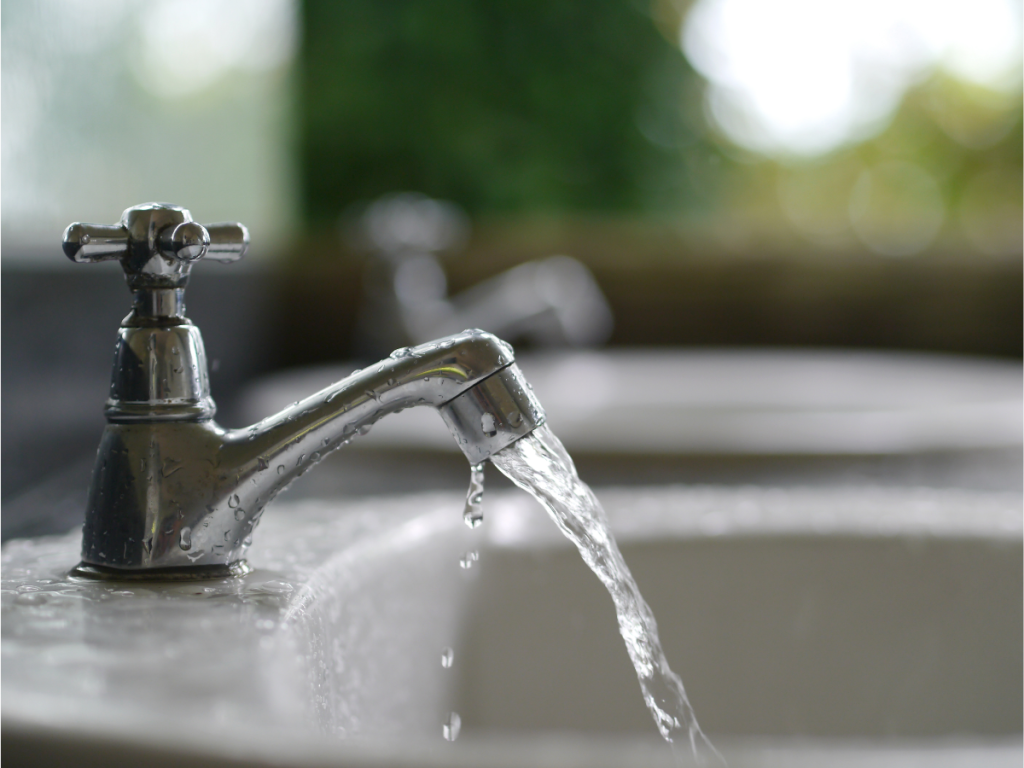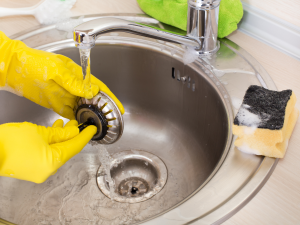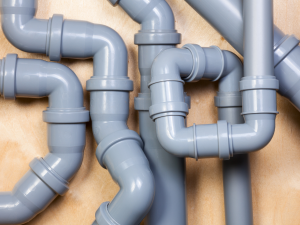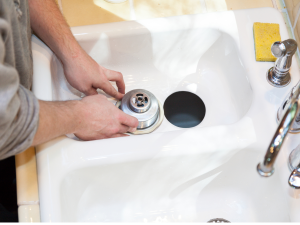If you’ve ever smelled the unpleasant stench of rotten eggs from your tap, you know it’s not the nicest experience. But don’t worry; Clover Contracting is here to save the day (and your nostrils).
In today’s article, we’ll explore why your tap water smells bad and how you can fix it. So buckle up, and let’s get crackin’!
Key takeaways
- If you smell rotten eggs from your faucet, it’s probably because of hydrogen sulfide or sulfur bacteria in your water.
- Your water is still safe to drink, but it may not be so appetizing.
- Get the issue fixed as soon as possible. While it’s not super harmful in small quantities, prolonged exposure could cause health issues.
Yuck! My tap water smells like eggs
The smell of rotten eggs coming from your pipework can be gross and alarming. This issue is actually more common than you think and typically boils down to a common culprit – sulfur.
There are a few things that cause a build-up of sulfur. The first is an accumulation of hydrogen sulfide gas in your plumbing system, either naturally from well water sources or through bacteria growth within pipes. Another potential source could be your hot water heater, where sulfur bacteria build-up can start to cause a bad smell.
Whatever the source is, address it promptly so you can enjoy clean, odor-free water in your home.
That’s where our experts can help! Our team at Clover is equipped with all the knowledge and tools to quickly identify and address any potential causes of the rotten egg smell in your tap water.
Don’t just take our word for it – give us a call and experience reliable, effective, and professional service firsthand!
Is this water safe to drink?
Many times, when homeowners ask about stinky water, the next question is whether or not it’s safe to drink and cook with.
Although the water smells bad, drinking water with minimal traces of hydrogen sulfide is generally safe to consume. However, the presence of it can alter its flavor and scent, making regular consumption unpleasant.
On rare occasions, high concentrations can cause side effects like nausea or stomach issues. While also rare, longer exposure to a lot of hydrogen sulfide could result in health concerns. Some symptoms include headaches, fatigue, irritability, dizziness and difficulty breathing. Loss of consciousness is also possible, but this is only in extreme cases.
If anyone in your household begins experiencing these symptoms, get fresh air and seek medical personnel immediately. While we have listed potential exposure symptoms, such exposure usually only poses a threat in industrial-level settings and shouldn’t usually be an issue for households.
Clover Contracting strongly supports maintaining high standards of water quality in your home. So, if you notice a bad smell from your faucet and taps, don’t ignore it. Give us a call – we’ll help you keep your water safe and clean.
What to do if your tap water smells funny
If your tap water smells bad, the first thing you should do is identify the cause of the stench. Narrowing down the causes will help you figure out what the issue is and how to solve it.
Turn on your tap and see if it’s only your hot water supply or both.
If you notice it from the hot water only, the smell could be a result of a reaction between your water heater’s anode rod and sulfur in the water, leading to the production of hydrogen sulfide gas. In this case, replacing your system’s anode rod with one made of aluminum might help.
If you notice the stench in your cold water supply as well, call a professional to run an official water test and identify the root of the issue. It could be from your well or from the municipal water supply.
Once you’ve identified the source, consider installing a water treatment system like a whole-house water filter or conditioner to remove gasses from your drinking water supply. Additionally, professional inspections and maintenance can help prevent future issues.
Sometimes, you may encounter other strange smells in your water. Here are a few different smells we’ve heard from homeowners:
- Musty
- Chlorine
- Sewage
- Fishy
- Metallic
If you smell any of the above, run similar tests to see where it’s coming from, take note and contact a plumber for assistance. The pros at Clover are here to help you with any plumbing issue you may have. Our technicians are trained to diagnose and fix the issue in no time.
Tips to improve your water
Prevention is the best cure. This also applies to maintaining fresh and clean-smelling water. Here are a few suggestions on how to safeguard your tap water:
- Regular maintenance: Cleaning and maintaining your plumbing system helps you identify issues early and stop them in their tracks. Maintenance tasks like flushing your water heater and drains can help eliminate the build-up of sulfur and other bacteria.
- Invest in water treatment: Install a treatment system to filter your water and stop bacteria growth in your pipework. This keeps your drinking water safe and smelling normal.
- Adjust your water heater settings: Low temperatures in your water heater can create a breeding ground for bacteria. Raise your unit’s temperature to 140 degrees Fahrenheit to keep bacteria from growing.
- Schedule professional inspections: Book regular appointments with plumbing professionals like Clover Contracting and have them take a look at your system. They will identify and fix things before they become issues.
Remember, if you notice any bad odors coming from your tap water, contact us as soon as you can. At Clover Contracting, our priority is always your comfort and health, so you can trust us to handle your plumbing needs.
Don’t let your pipes get you in a scramble. Call Clover.
If you need assistance with your plumbing, call Clover Contracting. Whether it’s smelly pipes, clogs, or bathroom renovations, we’ve got the expertise you need to keep your home system working like it should. It’s not luck; it’s Clover. Book an appointment with us today.




